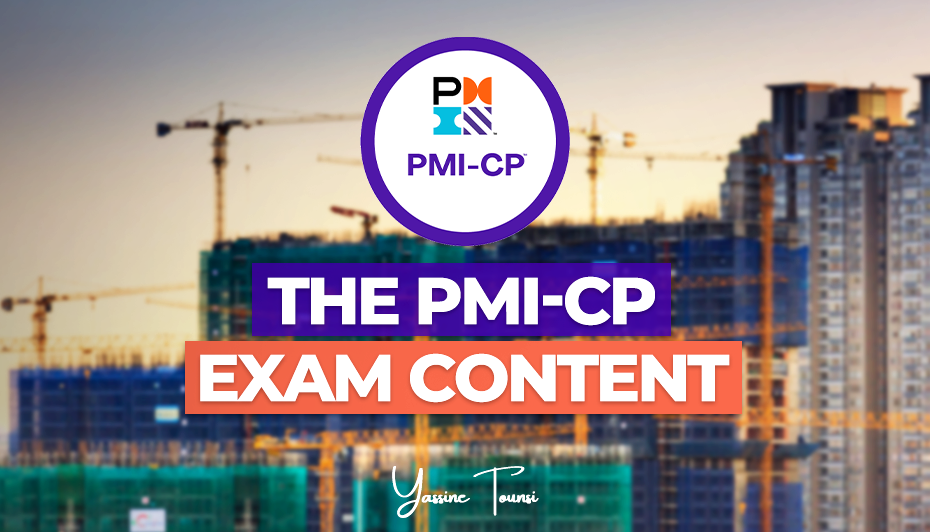I have received many questions about the PMI Construction Professional (PMI-CP) exam certification; what does it involve? what to expect? how different it is from the Certified Construction Manager (CCM) certification? and many more inquiries concerning this exam.
Therefore, I decided to write this comprehensive guide on what you should expect when you sit for the PMI-CP exam and how to prepare for it to help you decide whether to invest your time and effort in pursuing this certification.
PMI-CP ECO vs. 4 eLearning Courses
To sit for the PMI-CP exam, you have to get 4 eLearning Courses from PMI and pass 1 micro-credential at the end of one of the 4 courses i.e. Construction Project Communications. However, the PMI-CP exam is based on the Exam Content Outline (ECO).
Doing a simple comparison between the 4 exam domains outlined in the ECO and the 4 eLearning courses, you’ll find almost the same content. The table below explains this comparison:

Content of the 4 eLearning Courses
Since the exam is aligned with the courses, here is what the certificate involves according to the content of the 4 eLearning Courses.
Course 1: Construction Project Communications
- Importance of effective communication
- Building a communication strategy and plan
- Feedback loops (Positive, Negative, Internal, and External)
- Stakeholder management
- Resistance to change management
- Active listening
- Project governance
- The Big Room (Obeya)
- Commitment-based management
- Project Management Information Systems (PMIS)
- Compass Diagnostic Tool (CII)
Course 2: Construction Interface Management
- Extent and complexity of IM implementation (PIRI, ICAT)
- IM maturity stages
- IM classifications (Soft vs Hard, Internal vs External, Intra-project vs Inter-project)
- IM elements (Master Interface Plan, Interface Points, Interface Agreement, Interface Control Document, etc.)
- IM tools (Interface Management System/Software, IM spreadsheets, Interface Data Register, etc.)
- Interface Management implementation processes
- IM Roles (Interface Manager and Interface Coordinators)
- RACI matrix
Course 3: Construction Scope and Change Order Management
- Define a clear scope and objectives
- Scope Evaluation Tools (CII)
- Applying the Project Definition Rating Index (PDRI) tool
- Scope Management
- Managing scope creep
- Change order management
- Value engineering
- Technology supporting scope management (BIM, drones, data analysis, etc.)
Course 4: Construction Contract and Risk Management
- Contract life cycle (discovery, pre-award, proposal process, contract Mgt & execution, contract closeout)
- Contract clauses (change, dispute resolution, indemnity, time-barred, etc.)
- Contract and delivery method strategies (Design-bid-build, Design-build, CMAR, IPD, etc.)
- Contract payment structure (lump sum, cost plus a fee, T&M, etc.)
- Risk classification and prioritization
- Integrated Project Risk Assessment (IPRA)
- Risk Management tools and techniques (Monte Carlo simulations, probabilistic risk management techniques, and risk registers)
- Risk response strategies
- Common causes of claims
- Best practices to prevent and reduce claims and disputes (Dispute Review Board, Documentation, communication, etc.)
